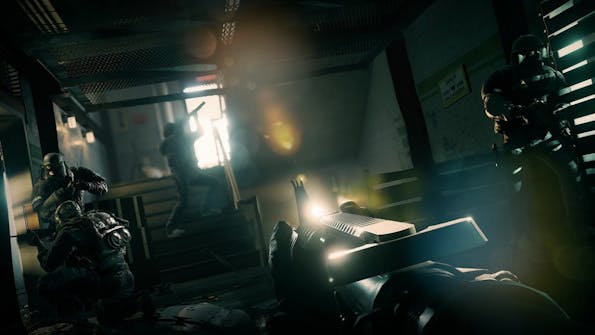Well, I had a piece planned on “Rainbow Six: Siege” for this week — a little thinkpiece about the whole ‘games as a service’ trend and how “Siege” has managed to both stumble into that model and sidestep the worst parts of it. But after the Activision-Blizzard layoffs, it just feels disingenuous to talk about anything other than the weird, terrible ways this industry is run and the ways it could be better.
Eight hundred people were laid off after the biggest of the big gaming companies posted its biggest profits ever, all because the company failed to hit an even bigger profit margin.
It feels like every few months something like this happens. The Telltale Games collapse of last year springs to mind, although that was under some radically different circumstances. Still, same cause — the poison pill of failing to hit arbitrary numbers for executives and outside investors.
"The games industry needs organized labor, plain and simple."
The thing I keep coming back to is that, just like Telltale, in a couple of weeks, what little press coverage there is of this will have died down and the usual news cycles will start back up again. It happens with every tragedy, and I’m nowhere near immune to it — chances are we’re coming back to fluffy “Rainbow Six” coverage before the end of this article.
Still, before I fade back that direction I want to give my two cents on what needs to be done to prevent this kind of thing from happening and also possibly amend the nonsense which was my Telltale coverage from a few months ago.
The games industry needs organized labor, plain and simple. I probably should’ve said that to start with, but I realize that there’s still a certain subsection of people on this campus who start seeing red after getting even a whiff of the word “union.” Here’s what I’ll say: Keep your opinions to yourself on organized labor in general, however wrong or right they might be.
Within media industries specifically — I’m talking movies, music, games — they are probably the best working model. The film industry has been functioning on a guild system for decades, and they are better for it.
Working in an artistic industry comes with a lot of risks. In film terms, for the average actor or director or technical person, they are often little more than a well-paid freelancer. Imagine a Hollywood without unions. If one isn’t guaranteed insurance, unemployment or other benefits through their guild, they’re in big trouble.
There will be a time when the actor don’t have a big project on their docket. Or, better yet, there will come a time when they are let go from a big project. Or the project itself collapses — it’s Hollywood after all, only a few pitches ever make it all the way to print.
"Eventually, every project gets shipped or canceled, and when it does, any staff that can’t be easily connected to a new project is shuffled out the door."
If they can’t pick up new work right away, at best they’ll have to find another, less satisfying line of work somewhere else. And that’s how one loses talent in an industry.
Video games have gotten away with not having this system for quite a while longer than the film industry, first and foremost because game companies don’t want to have to deal with unions, and secondly because game projects often take a lot longer than film projects. Unlike in other artistic industries, for upwards of several years the corporation that’s hired you can treat you as an employee instead of as a contract job. But it’s all just on a longer time scale. Eventually, every project gets shipped or canceled, and when it does, any staff that can’t be easily connected to a new project is shuffled out the door.
There’s a reason why voice actors have made the most progress on forming unions in this industry and why you hear about them going on strike more often. The turnaround on voice-acting jobs is quick — you are treated like a contract worker. If the Activision layoffs showed anything it’s that, from the highest level, everyone is seen that way.

A screenshot from "Rainbow Six Siege" offers an example of the quality of gameplay one can experience.
And so now, I come back to “Siege.” The Ubisoft shooter is just entering its fourth year, and after a rocky launch period, it’s gotten a lot of praise for its continuous updates and additional content. If you want to see everything the game has to offer, it is still going to cost you upwards of $60 this long after launch, but with so many things to do in the game, it almost feels worth it. I gave it upwards of a dozen hours and I was still stumbling into new maps and game modes. The point is it’s fine, a bit expensive and convoluted, but fine. It is a solid B+ worthy of some deeper praise and analysis.
The question is, who wants to still be making a solid B+ after four, or five years? There are some who appreciate the job security and pay such a project affords, of course, but of everybody still working on this thing, who’s still on it for the love of the work, and who’s on it because they’re afraid they have nowhere else to go? Food for thought.
Final Grade: B+
Marty Forbeck is a video games columnist for the Daily Cardinal. To read more of his work, click here.






